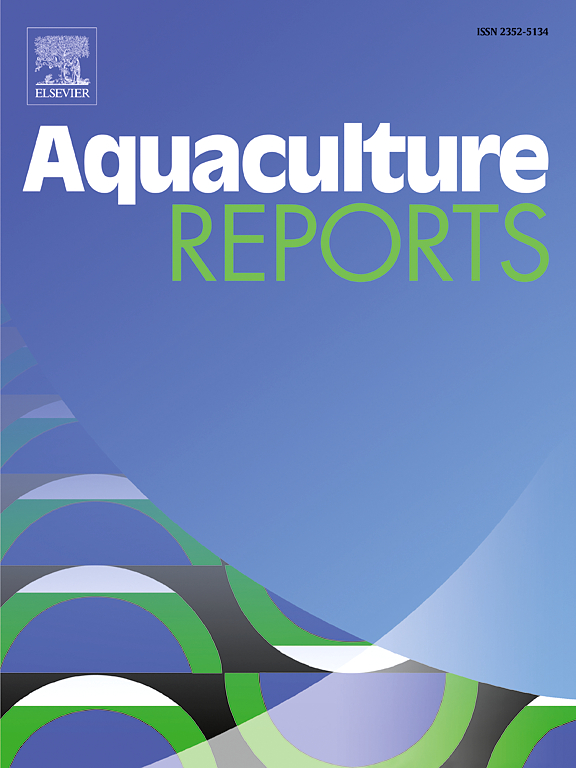综合多营养水产养殖替代传统虾类养殖的潜力:环境、经济和社会可持续性全球综述
IF 3.7
2区 农林科学
Q1 FISHERIES
引用次数: 0
摘要
虽然研究表明,综合多营养水产养殖(IMTA)对虾类养殖具有环境优势,但传统的单一和混合养殖系统仍然是主要的养殖方法。因此,在对虾养殖业中,有记录的国际渔业资源评估在解决诸如养分和温室气体排放、红树林面积减少和疾病传播等环境影响方面的潜力仍未得到充分利用。本文分析了IMTA在经济和社会可持续发展的同时减少对虾养殖对环境影响的潜力。在PRISMA方法的基础上,通过对全球文献的系统回顾,确定了IMTA在虾养殖中的环境、经济和社会可持续性。在环境方面,IMTA系统可以有效地去除多余的养分,平衡养分收支,减少农场的碳排放。在经济上,与传统生产系统相比,IMTA增加了农民的利润。尽管利益相关者发现,与传统生产系统相比,对虾以外物种的IMTA在社会上更容易接受,但社会层面仍未得到探索。其含义是,IMTA似乎是同时在所有三个方面实现可持续性的传统生产系统的一个有希望的替代办法。本文章由计算机程序翻译,如有差异,请以英文原文为准。
The potential of integrated multi-trophic aquaculture as an alternative to traditional shrimp farming: A global review of environmental, economic and social sustainability
While research shows that integrated multi-trophic aquaculture (IMTA) is environmentally advantageous for shrimp farming, traditional mono- and polyculture systems remain the dominant farming methods. Hence, the documented potential of IMTA in addressing growing concerns over environmental impacts such as nutrient and greenhouse gas emissions, reductions in mangrove forest areas and the spread of diseases, remains underutilized in shrimp farming. This article analyses the potential of IMTA to reduce the environmental impacts of shrimp farming while simultaneously being economically and socially sustainable. Founded on the PRISMA methodology, the environmental, economic, and social sustainability of IMTA in shrimp farming was identified through a systematic review of the global literature. Environmentally, the results show that IMTA systems can effectively remove surplus nutrients, balance the nutrient budget, and reduce carbon emissions from farms. Economically, IMTA increases farmers' profit compared to traditional production systems. The social dimension remains unexplored, although stakeholders find that IMTA for species other than shrimp is more socially acceptable than traditional production systems. The implication is that IMTA seems a promising alternative to traditional production systems for achieving sustainability in all three dimensions simultaneously.
求助全文
通过发布文献求助,成功后即可免费获取论文全文。
去求助
来源期刊

Aquaculture Reports
Agricultural and Biological Sciences-Animal Science and Zoology
CiteScore
5.90
自引率
8.10%
发文量
469
审稿时长
77 days
期刊介绍:
Aquaculture Reports will publish original research papers and reviews documenting outstanding science with a regional context and focus, answering the need for high quality information on novel species, systems and regions in emerging areas of aquaculture research and development, such as integrated multi-trophic aquaculture, urban aquaculture, ornamental, unfed aquaculture, offshore aquaculture and others. Papers having industry research as priority and encompassing product development research or current industry practice are encouraged.
 求助内容:
求助内容: 应助结果提醒方式:
应助结果提醒方式:


